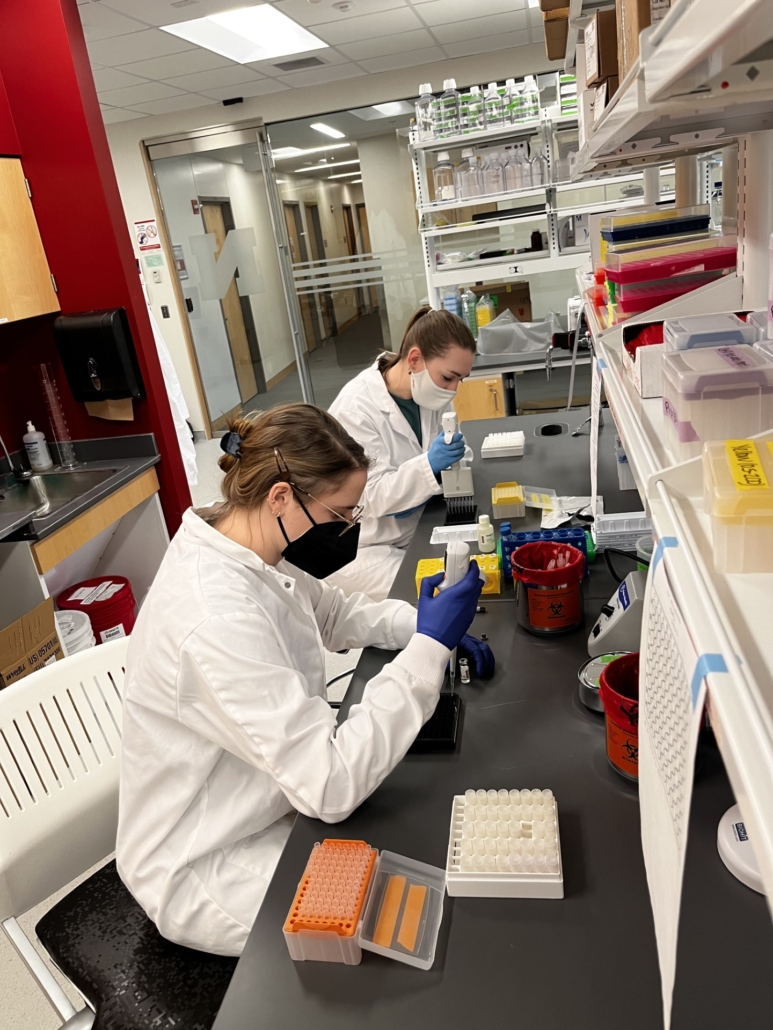Grantee Spotlight: University of Nebraska-Lincoln

Approximately 1 in 10 women in the US report problems with sexual desire, with post-menopausal women disproportionately at risk for distressing low desire. However, we still do not understand what causes low sexual desire in women, particularly in postmenopausal women. A team of researchers lead by Dr. Tierney Lorenz are working to improve our understanding in this area.
In previous work from their lab at the University of Nebraska-Lincoln, findings suggested that inflammation may play a key role in postmenopausal women’s low desire. In two prior studies, they found that inflammation levels predicted premenopausal women’s self-reported sexual desire levels, as well as how aroused a woman could become.
In 2019, the Patty Brisben Foundation awarded a study that allowed them to expand on this research in the Desire, Arousal and Inflammation across the Life Span (DIALS) study. In the DIALS study, they examined pre- and postmenopausal women, with and without sexual desire dysfunction. They tested if markers of inflammation predicted sexual desire and vaginal sexual arousal as measured in the lab. They also tested if differences in inflammation account for differences in sexual desire among pre- and post-menopausal women.

The team’s initial results did not turn out as anticipated. They found that the primary markers of inflammation, C-reactive protein and interleukin-6, were not reliable predictors of women’s sexual desire in the pre-menopausal sample. These results were published in The Journal of Sexual Medicine in 2022. However, there was some evidence that inflammation markers may be interacting with other factors – most notably frequency of sexual activity and history of sexual trauma – in ways that subtly influence sexual arousal for certain subgroups. They also found evidence that physical stress markers (i.e., cortisol levels) may amplify the effects of inflammation on a woman’s ability to become aroused but not her ability to achieve peak arousal. They are following up on these findings with additional studies and hope to put out several more papers in the next two years. They are also currently planning a follow-up study that will test if anti-inflammatory treatments (like omega-3 supplementation) may help prevent sexual desire problems in women with a history of sexual trauma.
In addition to the peer-reviewed journal articles listed above, they have presented findings from the study at several clinical and scientific conferences, including the International Society for the Study of Women’s Sexual Health (ISSWSH) and the Society for Sex Therapy and Research (SSTAR). In February 2022, Dr. Lorenz presented on the team’s research, including preliminary findings from the PBF-funded study at the Inquire Series, a prestigious public-facing lecture series put on by the UNL College of Arts & Sciences. Attendees even included the staff of several representatives from the Nebraska state legislature who were interested in learning more about women’s health research being conducted in the state.
Many women who interacted with the research team during recruitment and/or participation expressed they were pleasantly surprised to hear that researchers thought their sexual wellbeing was worth studying, let alone trying to improve. In one interaction at the Lincoln Women’s Expo, a postmenopausal woman said initially “Well you don’t want me then honey, I’m all dried up.” After learning more about the study, she sat down and talked for over 20 minutes about how once she started menopause, she was frustrated from trying to get her doctors to pay attention to her sexual wellbeing and eventually stopped bringing it up. After hearing how valuable her perspective could be to researchers, she said “Well, maybe times are changing – maybe you can find out something that could help women like me.” She signed up for the study, and later brought two of her friends to learn more. This sentiment was repeated by many of the participants following their sexual health history interview – expressing how healing it was to talk to someone who genuinely cared about their sexual experiences as an older woman.
The team is so grateful for the support of the Patty Brisben Foundation that made this study possible. They are hopeful that the results from this study and the research that will follow the pilot data will significantly improve the sexual lives of women and make them feel entitled to attention from their medical providers in this important area of wellbeing.
For more information on the team’s findings, please visit:
Recording of Talk at UNL College of Arts and Sciences: https://mediahub.unl.edu/media/18825

